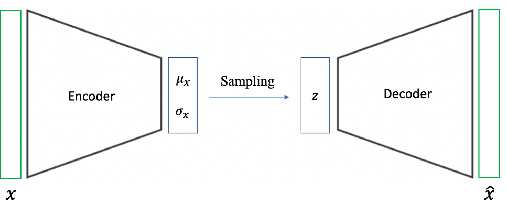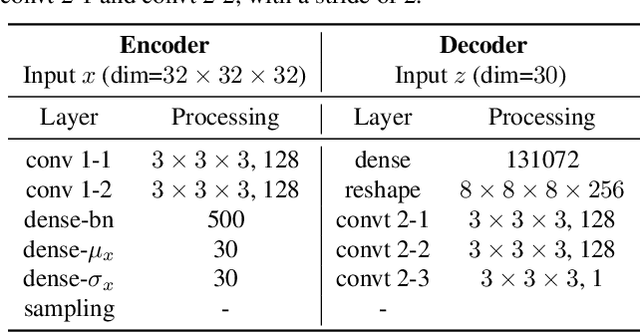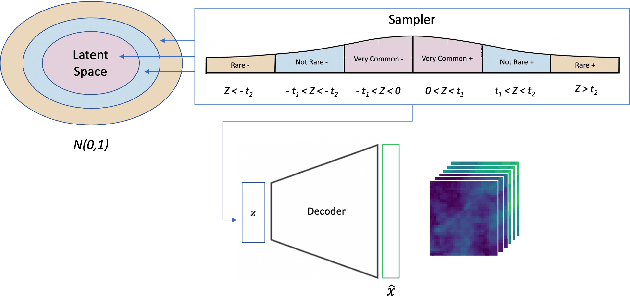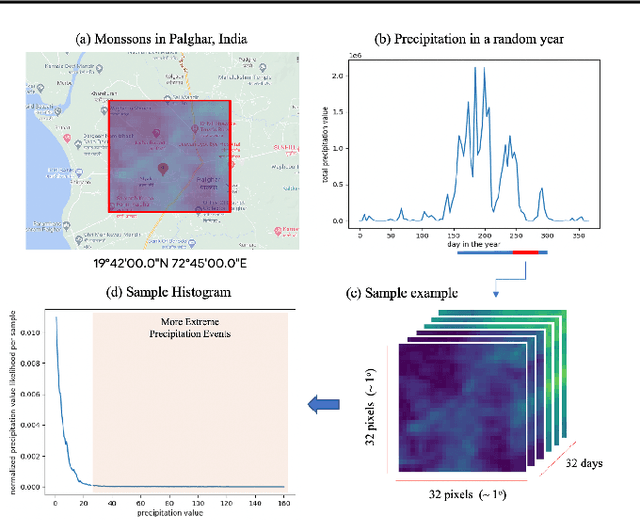Controlling Weather Field Synthesis Using Variational Autoencoders
Paper and Code
Jul 30, 2021



One of the consequences of climate change is anobserved increase in the frequency of extreme cli-mate events. That poses a challenge for weatherforecast and generation algorithms, which learnfrom historical data but should embed an often un-certain bias to create correct scenarios. This paperinvestigates how mapping climate data to a knowndistribution using variational autoencoders mighthelp explore such biases and control the synthesisof weather fields towards more extreme climatescenarios. We experimented using a monsoon-affected precipitation dataset from southwest In-dia, which should give a roughly stable pattern ofrainy days and ease our investigation. We reportcompelling results showing that mapping complexweather data to a known distribution implementsan efficient control for weather field synthesis to-wards more (or less) extreme scenarios.
 Add to Chrome
Add to Chrome Add to Firefox
Add to Firefox Add to Edge
Add to Edge